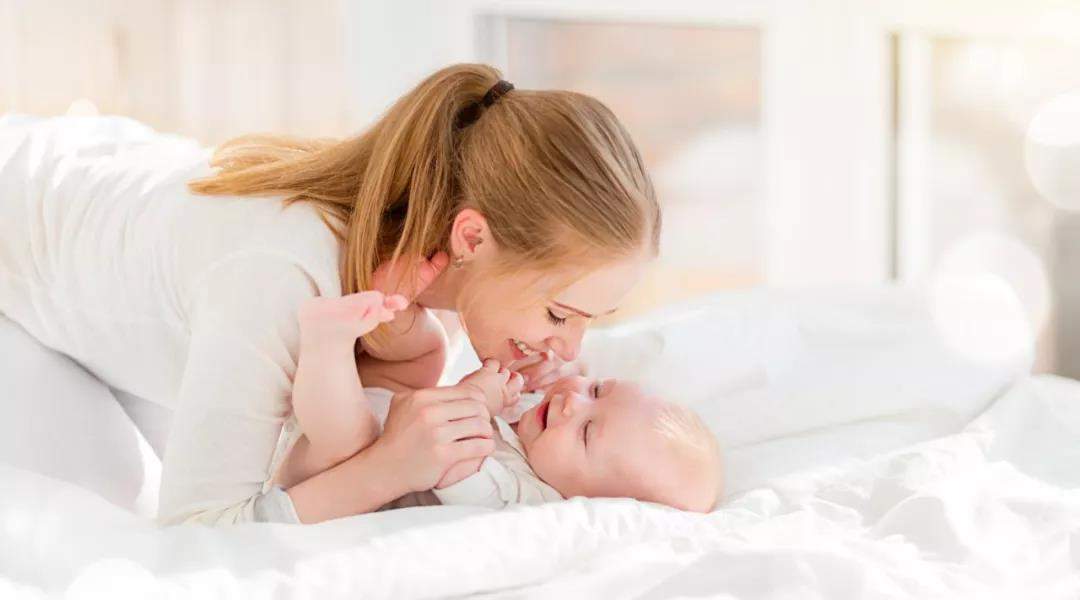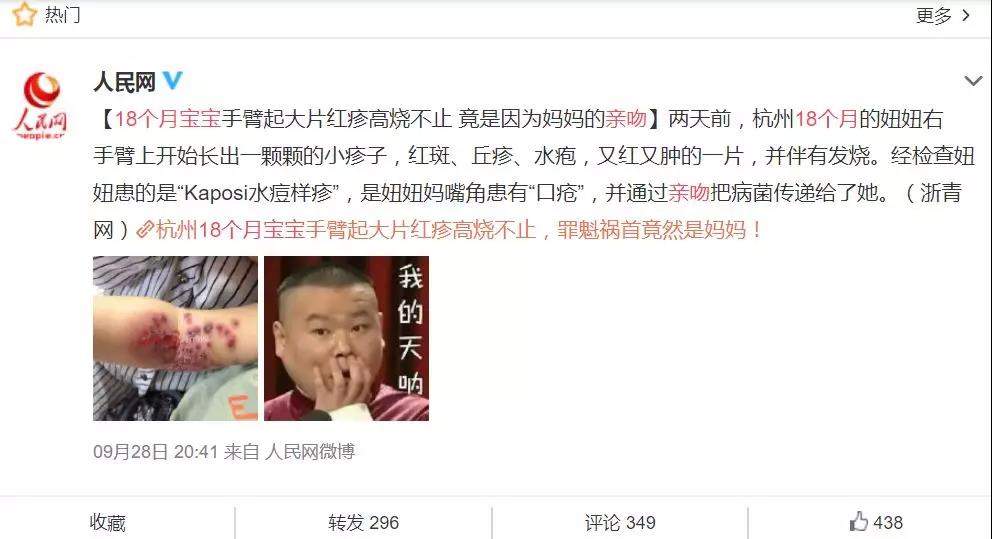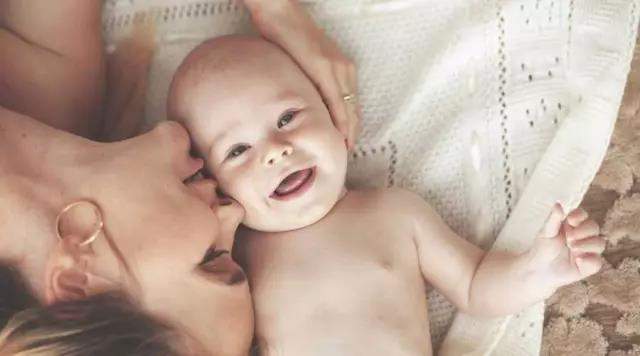In the face of the budding baby, adults seem to have no resistance and all want to show their love for the baby by teasing and kissing.
However, there may be unexpected dangers hidden in this love.
There are hundreds of pathogens in adults’ mouths, which may not be fatal to adults, but they are very dangerous to babies with insufficient immunity.
In order to avoid the harm caused to the baby by everyone’s love, Bao’s parents really can’t let these six kinds of people kiss the baby casually.
These six categories of people, don’t kiss the baby at will

1. People infected with viruses such as herpes and colds
If adults have rashes, blisters, kisses and contacts caused by herpes on their faces, the virus may spread. Not only can you not kiss your baby’s mouth, but you should not touch your baby as long as it is where herpes grows.
For newborns with weak resistance, if mumps virus exists in adults’ saliva, it may be transmitted to children through saliva.
In October 2019, an 18-month-old baby girl in Zhejiang Province was covered with red rashes and blisters on her arms, and had a high fever. The wound looked like disfigurement. After many medical visits, it was discovered that the reason why the child was infected with the virus after being kissed by her mother with spat sore.

Therefore, if someone catches a cold or coughs, they should wear masks and wash their hands frequently to avoid direct contact with their babies.
2. [leaflet] patient
Infectious mononucleosis is mostly caused by EB virus infection. However, it is difficult to diagnose the disease. Sometimes adults suffer from fever, pharyngitis, tonsillitis, cervical lymph node enlargement and other symptoms, which cannot completely rule out the possibility of infection.
Although the virus is mostly a recessive infection with inconspicuous symptoms, it may also be fatal to babies with immature immune function.
Since the virus can be transmitted through saliva, it is easy to infect the baby when kissing. Therefore, for the sake of the baby, it is better to be cautious.
3. People infected with Helicobacter pylori
People infected with Helicobacter pylori will have this bacterium in their stomach and mouth.
However, most of the time the infected people do not feel uncomfortable. If parents who are infected with Helicobacter pylori but have no symptoms chew food to feed their children, or share tableware with their children and kiss their children, these actions may spread Helicobacter pylori to their children.
4. People suffering from oral diseases such as periodontal disease

There are countless bacteria in adults’ oral cavity, some of which are the main culprits causing tooth decay and periodontal diseases (including gingivitis, periodontitis, etc.).
If we kiss the baby mouth to mouth or feed the chewed food to the baby, they may pass saliva into the baby’s mouth, affecting the baby’s oral health.
It is possible that adults’ oral problems are not very serious, they have not been examined, and they do not know that they have oral problems. Therefore, not kissing the baby mouth to mouth is the most reliable prevention method.
5. People with diarrhea
Generally speaking, diarrhea also has the possibility of intestinal infectious diseases. The person with diarrhea is likely to have pathogenic bacteria in his mouth, that is to say, if the person with diarrhea kisses the baby, he may also transmit the disease to him.
6. People with Heavy Makeup

This is not to say that mothers should stop wearing makeup, but it is better for mothers not to have intimate contact with their babies when wearing makeup.
Cosmetics may contain some ingredients that are harmful to the baby. If they are not careful to stick to the baby’s skin, they may cause contact dermatitis and other diseases. Cosmetics on the face are also a possible hidden danger.
You can kiss your baby, but don’t kiss your mouth.

Looking at the above examples, we will find that many people are hidden infected and do not know that they suffer from related diseases.
For the safety of the baby, it is best to avoid any kind of saliva sharing behavior, including kissing the baby mouth to mouth and feeding the chewed food to the baby.
In fact, even if we can’t kiss mouth to mouth, we can still express our love for the baby by kissing the cheek, forehead, or hugging the baby.
How to politely refuse others and kiss your baby?
My family is good at dissuading me, but what about others? Here are a few more tips for your baby to avoid kissing that we don’t like as much as possible.
Set boundaries: If someone comes up directly to kiss the baby, parents can tell them directly not to hold, touch or kiss the baby at will, and to be outspoken to acquaintances.
Make a “Don’t Touch Baby” sign on the stroller.
The older baby, when teaching her to kiss others, only kisses her cheek but not her mouth. When someone comes over to kiss her, she can turn her cheek over.
